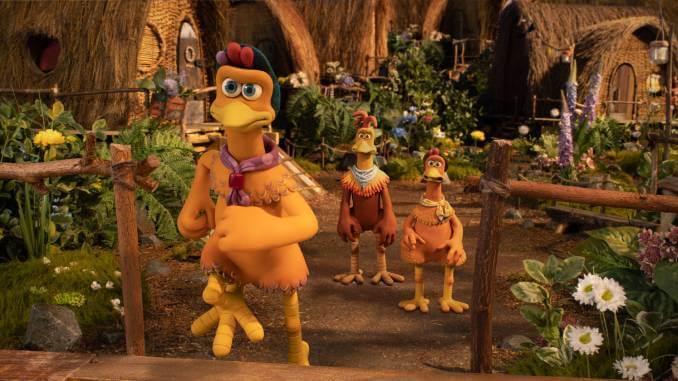Flavorless Sequel Chicken Run: Dawn of the Nugget Lays an Egg

It’s nearly impossible for a piece of stop-motion animation to completely squander the goodwill gained from making the hours of meticulous effort invested in an underloved art form gorgeously tangible. All movies require a percentage of this work, but rarely is the unforgiving monotony and sweat part of the final product’s charm. And, because working with stop-motion inherently requires specialized media and fastidious labor, there just aren’t that many feature films using it—let alone sequels to those movies that do get made. A stop-motion cash grab is an oxymoron. That contributes to the track record of stop-motion movies: There’s such a high barrier to entry (and, let’s face it, a low rate of return) that you only decide to mold 100,000 different faces for the very best projects. That helps explain my disappointment with Chicken Run: Dawn of the Nugget, an inoffensive drive-thru meal served at the same table as some of our most decadent animated feasts.
Like so many long-coming sequels that’ve been shuffled out the door recently, Chicken Run: Dawn of the Nugget (arriving 23 years after the original) catches up with the escapees from Aardman Animations’ charming poultry farm prison break as their new life slowly gives way to the old plot tempting them back. Ginger (Thandiwe Newton, replacing Julia Sawalha) and Rocky (Zachary Levi, replacing Mel Gibson) have built a life with their flock on an idyllic island. It’s safe and dull. Where the chickens once shared a drive to flee, they now purposelessly amble through life. Where Chicken Run once played off of the specific aesthetics of WWII POW films with dark humor, Dawn of the Nugget loses its identity in favor of a harmless playfulness interchangeable with a Madagascar or Ice Age sequel. It’s babyproofed filmmaking, which completes the movie’s natural suburban analogue: A safe space in which Ginger and Rocky can welcome their child, Molly (Bella Ramsey).
An animated sequel watching its original characters, beloved by children, grow up to have children of their own is nothing new. The Little Mermaid had a kid. Lady and the Tramp had a couple. Hell, Shrek’s got triplets. But applying this trope to the recent trend of decade-spanning sequels—movies not necessarily handing over the crown like legacyquels Jurassic World or Ghostbusters: Afterlife, but simply returning to the IP vein long after it dried up and left a ghost town behind—presents the opportunity to capitalize on the sheer amount of time that’s passed.
Movies like Chicken Run: Dawn of the Nugget can stretch beyond their design as simple nostalgia, bending the inevitable march of time to their thematic advantage. But despite Dawn of the Nugget initially leaning hard into the familiar beats of this aging dynamic—with hypocritical parents pleased to paper over their past and a youngin’ yearning for more than the doldrums of stability—there’s barely any characterization to win over grown Chicken Run lovers or their young brood.
This is partially the fault of the film’s structure. As Molly abandons paradise for the alluring advertisements belying the nightmarishly corporate and automated Fun-Land Farms, the sluggish set-up gives way to a reversal of the original’s story. It’s not a breakout, but a rescue mission. The misguided free spirit soon finds that the well-marketed chicken utopia is simply a processing plant…albeit one that looks like a psychedelic ‘70s variety show set, fully equipped with happy-making mind-control collars for its nuggets-to-be. She’s stuck in one loosely sketched plot, while the rest of the cast scrambles through another on their way to save her.
The sparse, recycled energy Flushed Away and ParaNorman director Sam Fell brings to this sequel is spread thin across these groups, themselves going through the motions set by the bare-bone designs of a returning script team. Instead getting to know Molly as she navigates captivity as the only free-thinking chicken left, we spend most of our time with the core group of characters, reduced to their most boiled-down chicken-stock qualities. One is stupid, one is strong, one is smart, one is old. Most of their jokes are repeated overliteralizations, their problems are purely logistical and easily solved. It’s a repetitive series of safeties and perils, cycled through until reaching the inevitable endpoint, when the chickens all head for the meat grinder and everyone scuffles for the single remote control that can save them all. It’s boring and sprawling, with only a tiny drop of sauce flavoring the proceedings with humor or charm. It’s predictable, but worse, it’s anonymous.
-

-

-

-

-

-

-

-

-

-

-

-

-

-

-

-

-

-

-

-

-

-

-

-

-

-

-

-

-

-

-

-

-

-

-

-

-

-

-

-








































